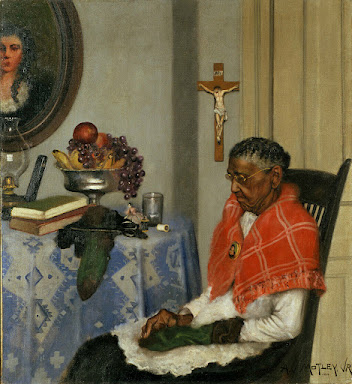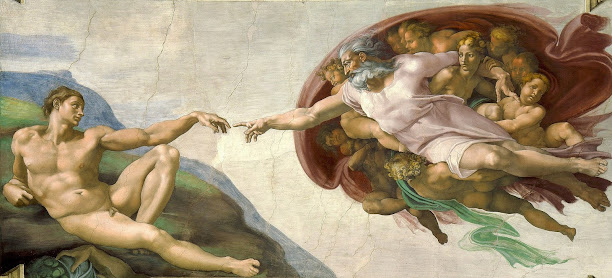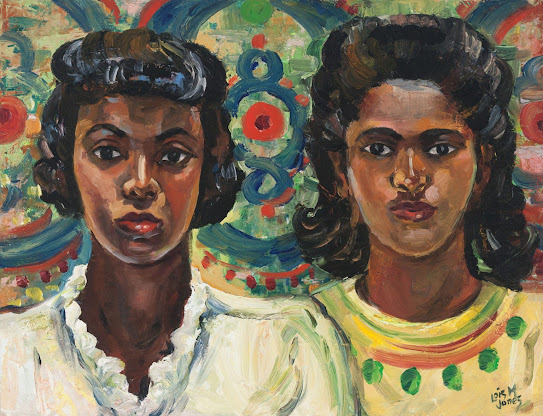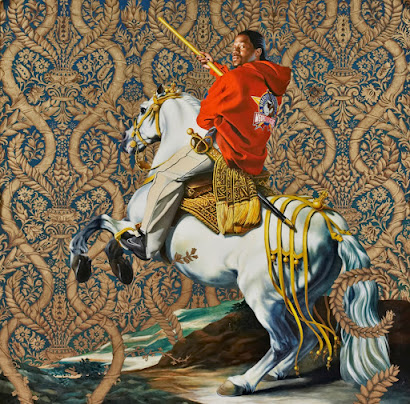The Narrator and History
Though as of the
last reading the narrator is still involved in the Brotherhood, he has become
increasingly disenchanted with the organization, especially after Clifton’s
death. However, he is hesitant to leave the Brotherhood because “it [is] the
only historically meaningful life that [he] could live” and he has “lost too
much” of himself to go back to being who he was before he found the Brotherhood
(478). Though the latter reason is important as it pertains to the theme of
identity in this novel, for the purposes of this blog post I am interested in
exploring the narrator’s concern with the idea of being “historically meaningful.”
The narrator’s
desire to be remembered in history seems closely related to his ambitious
nature and desire to climb to the top of anything he pursues. Throughout the
novel the narrator has had a deep desire that he has yet to shake, which is to
be powerful in a way that allows him to be visible to others. This ambition is
why he looked up to Bledsoe so much, as Bledsoe had enough prestige to be
visible to even white people. And what would make the narrator more visible
than being a historical figure: someone who people would know about for decades or
even centuries after his death?
Another layer to
the narrator’s thoughts about history and historical importance is that history
itself seems to be racialized. The Brotherhood wants to ignore history because
it wants to ignore race. Therefore, it specifically tries to ignore history as
it pertains to race and racial injustice. Conversely, the narrator thinks that
what is recorded in history is important, but tends to think of black people as
being outside of it. When the narrator is walking through Harlem, he looks at
the people around him and thinks, “They were outside the groove of history, and
it was my job to get them all in, all of them” (443). Additionally, when the
narrator is arguing with Brother Jack and Brother Tobbit, he refers to the
happenings in black communities as “unrecorded history” (471).
I’m not quite sure
what to make of the narrator’s views of history. His own desire to be “historically
meaningful” is certainly a selfish one, however his desire to bring black
people into the spotlight of history isn’t necessarily—in fact it sounds very
not selfish. However, I can’t help but wonder if his efforts are misguided
because they ultimately seem parallel with his battle to be visible, which of
course the narrator eventually fundamentally disagrees with.




I really like the way you talk about the narrator's conflicting ideas about history throughout the book. It does seem like the Brotherhood's idea of what is historically important is conflicting with the narrator's. I wonder whether his desire to be personally historically important and his desire to advocate for his community are at all linked because all of the fame and recognition that he gets are for the activism that he does. I'm not sure that makes them linked though, maybe he does just want to be personally visible to others however he can.
ReplyDeleteThis was a really interesting exploration of the narrator's perspectives and motivations as they relate to his role in the Brotherhood. It had never quite occurred to me that his efforts to be a force that shapes history and his personal desire to be visible would go hand in hand, but it makes a lot of sense that the two concepts are somewhat interconnected in the narrator's mind. One place that I think that dynamic really stands out is in the scene in which he gives his first speech as part of the the Brotherhood, where he prepares to speak on the broader, more "scientific" forces in history that are the foundation of the Brotherhood, but ends up leaning into how the experience of standing isolated and blinded in front of the enthusiastic crowd makes him feel seen and human.
ReplyDeleteI think it's really interesting how you compare the narrator's aspirations to Bledsoe at the beginning of the novel. The narrator, like everyone else, doesn't know who Bledsoe truly is. Bledsoe, who the narrator believes is seen by himself and by white people is actually very invisible until he exposes himself to the narrator. The only thing that is visible is the façade he puts on.
ReplyDeleteIt's really hard to separate the narrator's views of "history" and the B'hood's here, and that's part of the point: when he refers to "history," he definitely seems to have in mind the Brotherhood version (which has curiously little to do with the past, and in fact entails the narrator cutting all ties to his own personal past). The Brotherhood uses "history" to refer to their "theory's" version of the present, so "to plunge outside history" is to leave the organization, the only place where (the narrator believes) he can be "written in" to history through his participation in the movement. History is something the Brotherhood seeks to control, and it depends on an erasure of the past.
ReplyDelete